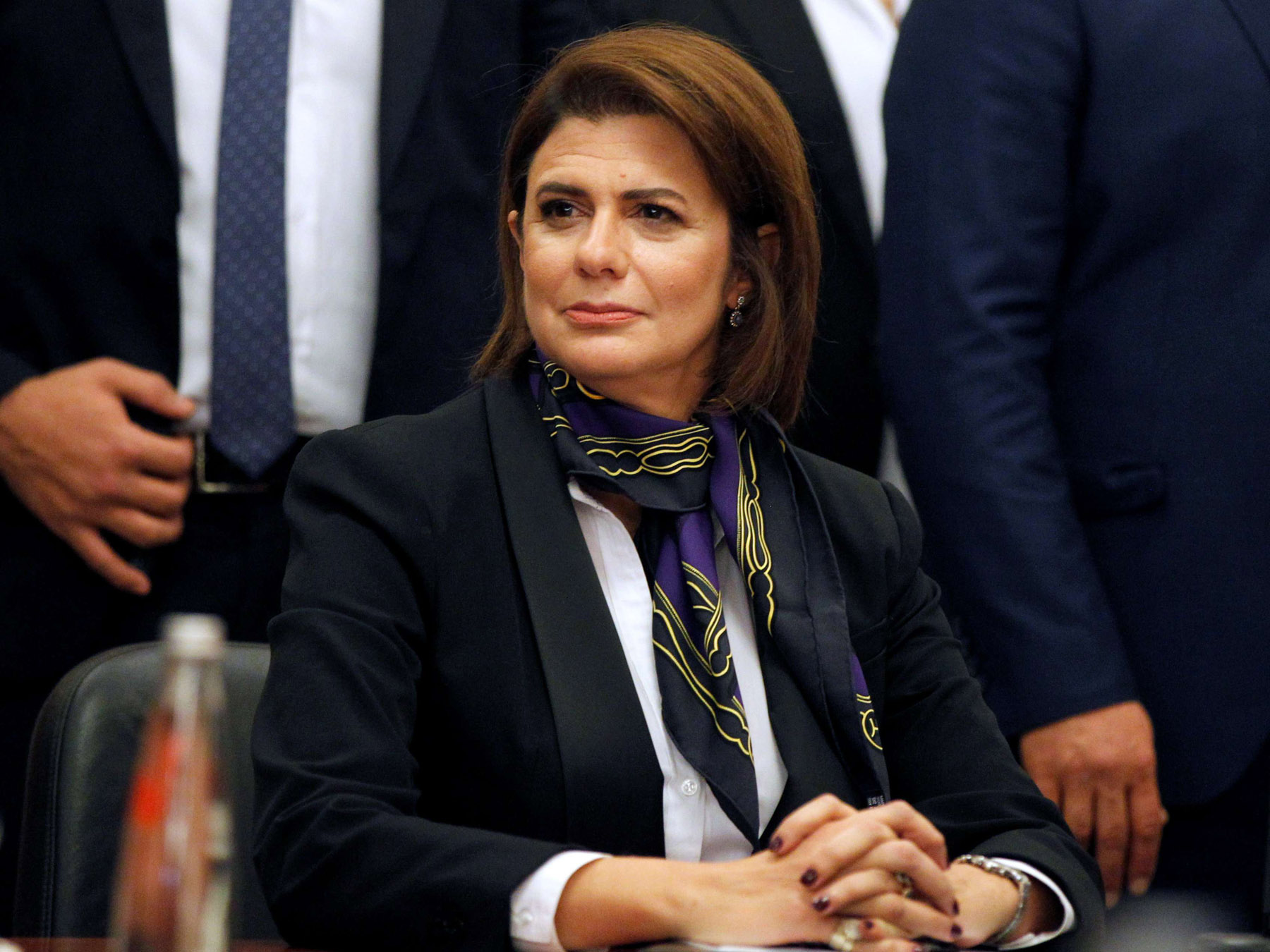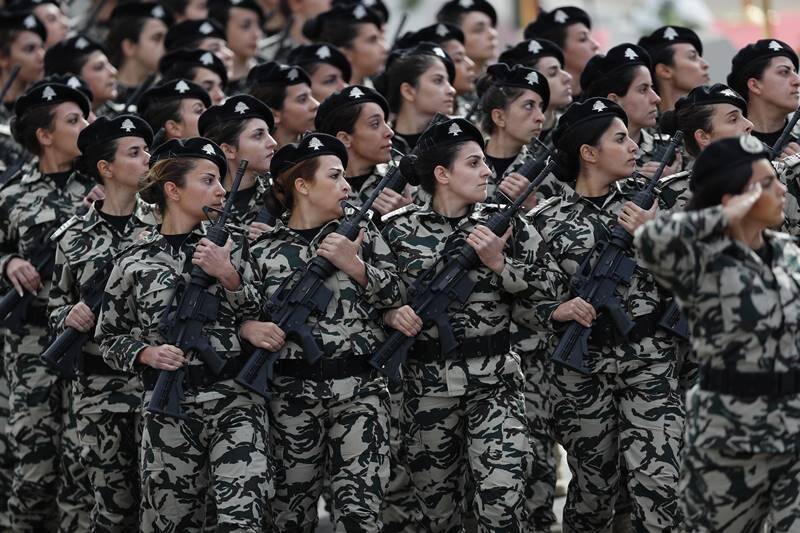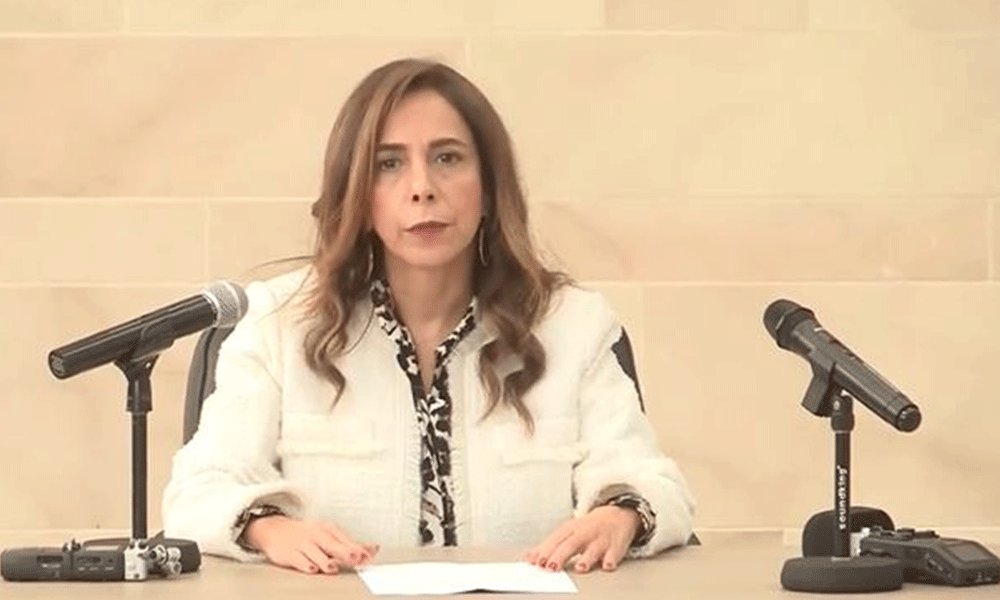Notorious for his recent misogynistic comments, Lebanon’s Interior Minister Mohammed Fahmi is back at it again, now saying that women cannot take on the role of Interior Minister because the situation in Lebanon today is “not safe for women.”
Fahmi, who claims he is not sexist and personally believes that he is merely speaking out of logic, holds that there is no place for women in the government of Lebanon that exists today – especially not as prime minister.
Explaining his personal opinion, or “logic” as he labeled it, minister Fahmi, who is the successor of the first Lebanese female Interior minister, Raya El-Hassan, compared Lebanon to a jungle, rather than a civilized country.

According to him, a man is better suited for this position because he can go down to a ‘very low level’ (in behavior) and do degrading things that “a woman cannot,” i.e. deal with drug addicts, drug dealers, thugs, etc.
“We’re not in Britain, Sweden, or London. In Lebanon, we have a culture where a woman cannot go down to such a low level,” he said in a televised interview with Al-Hurra.
“This is the Eastern mentality,” chimed in the host, to which Fahmi responded, “I’m not stating that it’s an Eastern or a Western mentality, not at all, but the point is that right now in Lebanon the situation is not safe for a woman.”
It is to wonder what he then assumes that the Lebanese women in the military have been doing on the line of duty.

He even stated that the experience of women in the interior minister hasn’t been successful, most probably insinuating his predecessor Raya El-Hassan, whose whole government team, majorly formed of men, can’t be either deemed successful.
If, by that, Fahmi meant El-Hassan’s previous incapability to stop the police from using excessive force on the peaceful demonstrators, he himself hasn’t done any better, as witnessed in the protests during his term, and after August 4th and more recently during the protests of the AUB students.
It is to say, the current interior minister is not the best placed to judge others for their success or lack of it in running ministerial positions, considering how messed up the “interior” of the country has been, with no improvement whatsoever since he took office on January 21st, 2020.
From the smuggling operations increasing at the northern borders, the ongoing corruption, and the Beirut port explosion that occurred under his watch, to his open defiance of the judiciary in relation to the investigation, and the list goes on.
For the sake of argument, tasks that require dealing at (what he calls) “very low level” as with “thugs” and “drug dealers” etc. are conducted by the law enforcement on the ground and not by a minister in position.
And these law enforcement units in Lebanon include female police officers, whose work value the current minister just dismissed with his statement that women cannot do that job.

Furthermore, his conviction that a Lebanese woman is not strong enough to be an interior minister automatically brings to question his view on the Lebanese woman currently heading the defense ministry, Zeina Akar.

His statement discredits her and all of Lebanon’s female ministers… not to mention what it says about all women serving in the Lebanese Army and Internal Security Forces.
The mere fact that Lebanon has reached this jungle-like state (as he labeled it) under decades of the all-men ruling of the country’s affairs nullifies any validity to his gender-bias statements.
From heads of governments and heads of ministries and municipalities to the head of the central bank, Lebanon has been subjected to continuous crises, which they have created, maintained, duplicated, and branched out, and some even benefiting from them for their personal gains.
These officials who pride themselves so much in their male-gender as an indication of their superior capability have been even unable to solve any crises, implement any reform, and even decide to agree on a government formation, which has become a never-ending saga.
That’s just to emphasize that the gender of a person is not an indication of better or lesser capability.
Minister Fahmi seems to feel entitled to repeatedly offend Lebanese women by degrading their roles and aptitudes, attracting much attention to him from the public and the media reacting to his repeated discriminatory remarks.
One would wonder if that is the purpose or if he really believes in the inferiority of the Lebanese women.
Whatever the case, what is most concerning is how Lebanon will ever succeed in given its women their full civic rights when the country still harbors lawmakers and officials with such a gender-bias mindset.
